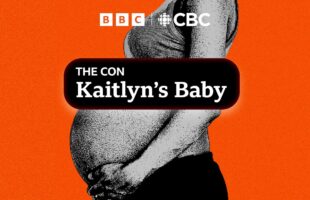They say to hunt down a serial killer you got to get inside his head; and Dr. Hannibal Lecter would probably mean that, literally.
The famous flesh-eating psychiatrist-turned-serial killer is one of three psychotic slashers that has invaded primetime television in recent months. Hannibal premiered early April across Asia (AXN announced that the pilot was “the number one programme in its timeslot among ad-supported channels in Southeast Asia, leading the nearest competitor by 28%”); while Bates Motel, featuring a young Norman Bates with his mother Norma (while still alive), premiered to rave reviews and ratings in the U.S. The famous motel will soon open its doors May 29 on Universal channel in Asia. Finally, The Following, fronted by Kevin Bacon as a worn-out FBI agent in search of a serial killer, premiered earlier this year on SingTel Mio’s Season Pass and on Nine Network in Australia; while the rest of Asia can expect the series soon, as Warner Bros. licensing tells us that regional pay-TV rights are currently in negotiation.
Marie Jacobson, Executive Vice President, Programming and Production, Networks, Sony Pictures Television, which commissioned Hannibal, says the interest for this genre is fuelled by the plethora of crime shows on primetime.
“Procedurals like CSI, NCIS, Criminal Minds, etc have taken the TV landscape by storm. And while we continue to depend on these franchises to drive viewership, we want to be sure the episodic crime shows we commission and acquire continue to engage and surprise. The genre will no doubt remain, albeit reinvented and reengineered to keep the formula fresh,” says Jacobson.
Both Hannibal and Bates Motel draw from famous literary characters that have been propelled to icons on the big screens – “big” characters making for compelling watch on the “small” screen.
“There is deep mythology across Thomas Harris’ body of work. We found fans of the genre were demanding deeper insight into the Hannibal character and his world. Our series is an origin tale which leans heavily on Harris’ foundation but adapted for the small screen by Bryan Fuller who has envisaged it with great visual style and elegance,” says Jacobson.
Carlton Cuse, EP and writer for Bates Motel, tells TV ASIA Plus how he jumped at the opportunity to do a Psycho reinvention.
“Bela Bajara and Russell Rothberg from Universal television asked me if I would be interested in rebooting the Psycho franchise, and although there was a high-degree of difficulty involved, I kept thinking about the idea. It’s really interesting to me, to have the chance to take this iconic character of Norman Bates and introduce the audience to his relationship with his mother. In the original Psycho movie, we never see Norma Bates alive. The opportunity to bring the character to life seems really intriguing as a writer. What my partner, Kerry Ehrin and I have tried to do is create a relationship between Norman and his mother that is really complex and unexpected. If you watched the movie, you would have thought that his mother was this evil, horrible person that drove Norman Bates (insane), but our premise is that they have a very loving relationship. The opportunity to take these two iconic characters from the book as well as the movie, to put them in a new contemporary setting becomes really intriguing,” says Cuse.
How then, would two cinematic thrillers with significantly high levels of gore, translate on small screens that are so invasive in every home?
“There is a pretty intense scene in the first episode. However, like Hitchcock’s scene when Norma Bates gets assaulted, you don’t really see it,” says Cuse on Bates.
“The camera doesn’t really show the assault directly – which is sort of stealing from Hitchcock’s playbook. Other than that, I don’t think the show is really horror. It’s more of a psychological-thriller. There are a lot of unexpected twists and turns, but I don’t think there was ever violence in the show just for violence’s sake.”
The Bates versus Hannibal comparisons are inevitable; given their subject matter, lead characters, their literary and cinematic beginnings, and the timing of both premieres.
“The timing of Bates Motel and Hannibal is co-incidental,” says Cuse. “My impression is that Hannibal is little more graphic and hardcore horror. Bates actually, like five minutes after the (intense) scene – there’s even humour. Hannibal is an incredibly well-made show but we’re different in execution.”
“Hannibal is arguably the world’s most notorious criminal. He captivates a wide audience because he is not your stereotypical villain – he is smart, elegant, a lover of the arts. He is a distinctive, completely fictionalised character who plays against type. Hannibal is a hyper-stylised, character-based procedural with a signature look and sound. There is nothing else on TV like it,” says Jacobson.
So is the “slasher” genre the NEW muse for primetime drama?
“I do think so. There’s an incredibly strong petition for horror and suspense movie in Asia that are incredibly well-made. I think the audience that like the thrill and chills of those movies will really like Bates Motel. TV shows are now very film-like. To us, it felt like making a mini-movie. I really believe that the audience will catch themselves really “in love” with the characters and pleasantly gripped by the suspense and surprises of our storytelling,” says Cuse.
“I think there are two keys to good television. One is to make the audience really involved with your characters. The audience will “fall in love” with a flawed character and not just a heroic character. I think that those complex (flawed) characters also allow us to have some unpredictability which is often rewarding in television. Secondly, consciously or not, there are certain rhythms and conventions to television that we have come to expect, and when you can change up their expectations, the audiences get really engaged. We worked really hard in Bates Motel to turn and twist stories in a way that are unexpected,” Cuse added.
Speaking of flawed characters, the other “slasher” drama to watch out for is The Following, touted as leading man Kevin Bacon’s inaugural TV outing. While not based on previous literary sources, it has elements close to Hannibal and Bates, and includes a very flawed FBI agent on the search for a serial killer, who later in the series, and without revealing too much, unveils a severe character flaw that make for some dramatic twists in the narrative. The Following, from creator/ writer Kevin Williamson of Scream fame, together with Bates Motel, and Hannibal, represent the new rage on primetime – time for a new scream fest.








